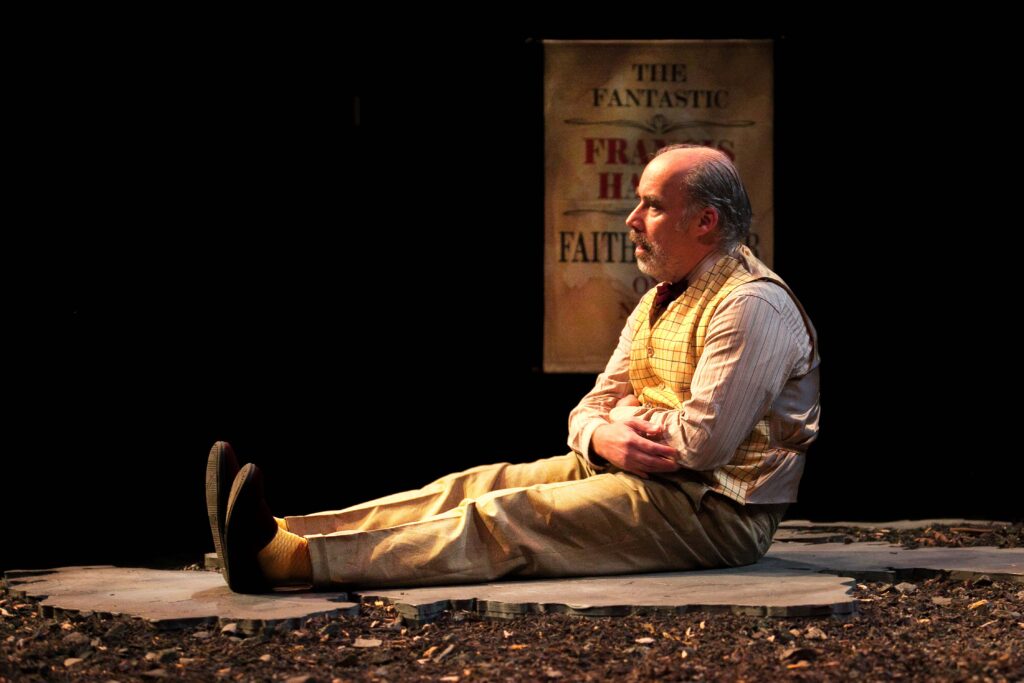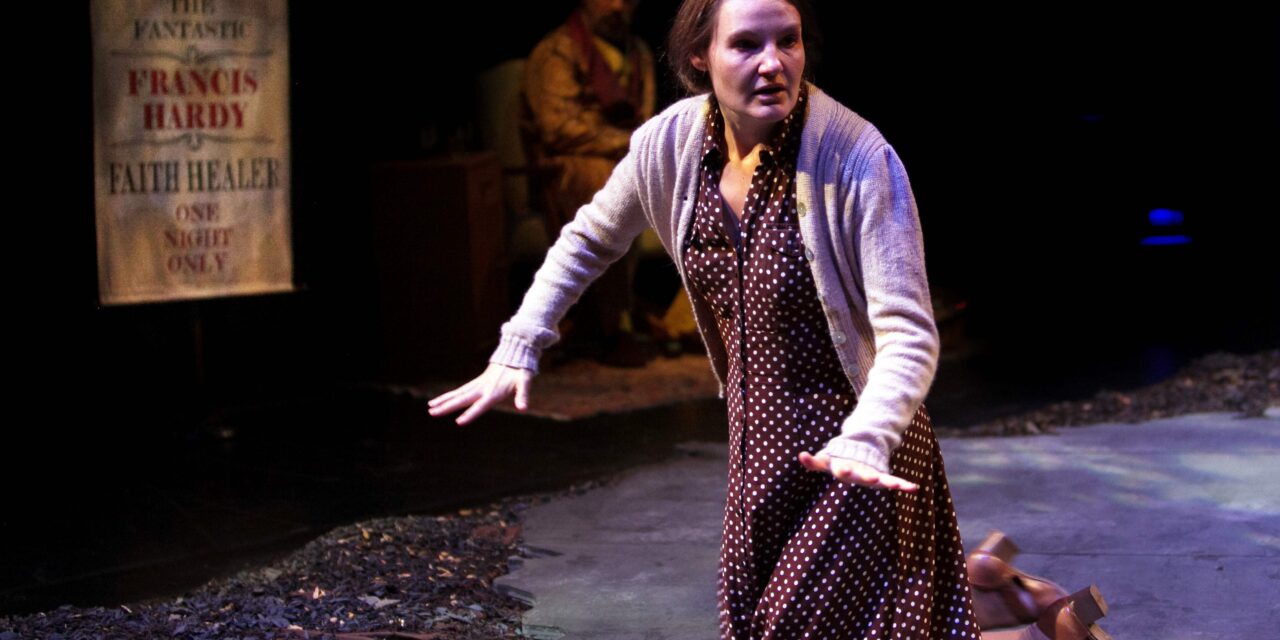
19 – 23 September
It is now over forty years since Brian Friel penned “Faith Healer”, yet it remains a popular and important play, exploring as it does themes of truth, identity and storytelling. Voted as one of the 100 most significant plays of the twentieth century in a poll conducted by the Royal National Theatre, it is also one of the “40 best plays of all time”, according to The Independent. Its reputation therefore is unquestioned. But how relevant and resonant is this widely-acclaimed work for a 2023 audience…?
The show consists of four lengthy monologues, the first and last of which are delivered by Frank Hardy, the eponymous central character, with his long-suffering wife, Grace, and charismatic manager, Teddy, providing the other two. In a time when monologues as a form of artistic and theatrical expression are increasingly rare, this is an intense but very engaging exploration of how unreliable narrators can be, and how the truth can be malleable and fluid, depending on who is telling the tale.
Hardy’s opening monologue initially evokes our sympathy: here is a man reflecting wistfully on his “gift” – his supposed ability to heal the sick. His reminiscences hinge on three set pieces from Hardy’s life as he tours the sleepy backwaters of Wales and Scotland in the 1950s: a mass-healing of ten people in Wales, the tragic stillbirth of his only child in a remote but beautiful corner of northern Scotland, and an ill-fated return to his homeland of Ireland where he encounters members of a wedding party, with seismic consequences. However, the credibility of this divine blessing is open to question, as inconsistencies concerning his narrative begin to emerge, and we find ourselves wondering if even the “gift” itself is an illusion, the product of a beguiling and convincing monologue.
These doubts are further fuelled by Grace and Teddy’s contrasting versions of events, as we come to appreciate that none of these characters offers us any real objectivity. We see these same key episodes from three different perspectives as we are presented with the challenge of trying to work out for ourselves exactly what took place, piecing together the clues from three distinctly unreliable narrators.
The show is an intense and absorbing experience. Acting of the highest quality from Paul Carroll as Frank, Gina Costigan as Grace, and Jonathan Ashley as Teddy, means all three characters are wonderfully and charismatically realised. The staging is simple but highly effective: a fragmented floor seems to suggest the outlines of the three countries where the narratives are set, with a large mirror upstage not only reflecting the floor, but with its mottled and stained appearance, it also cleverly suggests the opaque and illusory nature of truth. Whilst none of the three characters interact with each other at any point in the play, despite sharing the stage through most of Act One, the mirror means we often see two sides to our characters, literally and metaphorically, further accentuating the play’s central themes. In addition, the use of lighting and shadow is highly effective, creatively and thoughtfully illuminating the three players at different points throughout. Technically, the staging and lighting is very simple, allowing us to focus without distraction on the intensity of the characters’ performances; the play is all the better for this.
London Classic Theatre have been producing critically-acclaimed shows for thirty years. “Faith Healer” is no exception. Artistic Director, Michael Cabot, and his creative team, deserve praise for reviving this deliciously dark drama, one which will have you pondering and questioning long after the deserved applause has faded.
★★★★☆ Tony Clarke 20 September 2023
Photo credit: Sheila Burnett


